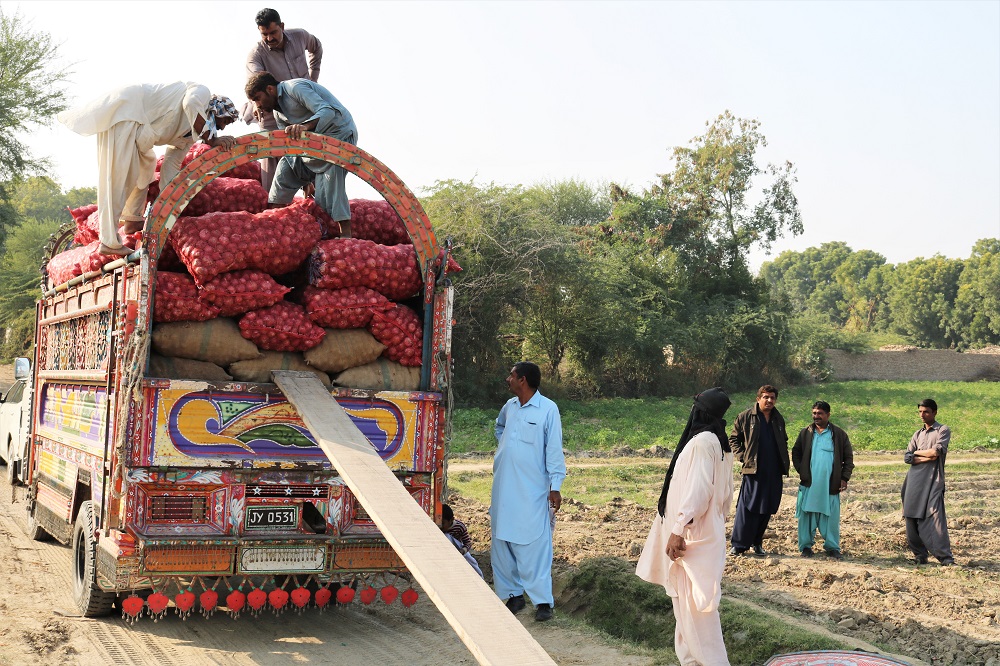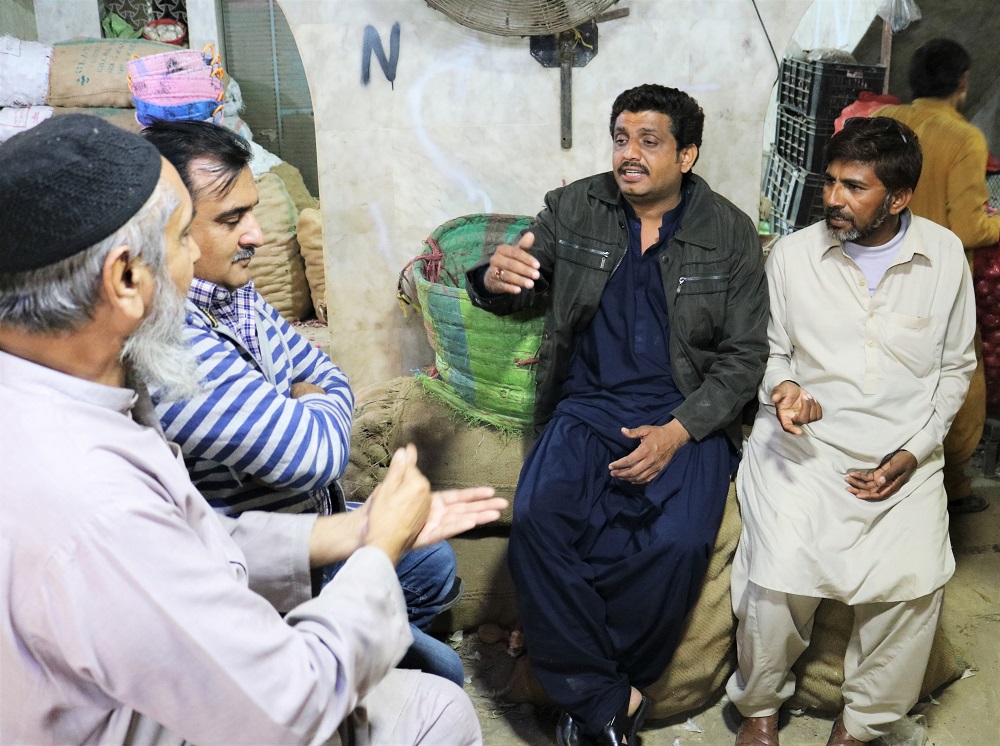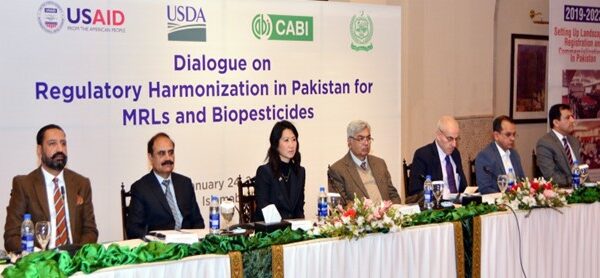
Mr Quraish and Mr Babar are both members of the Strengthening Vegetable Value Chains in Pakistan (SVVCP) onion farmer’s group, from the village Ibrahim Shah in district Tando Allahyar Sindh, who are keen on increasing their yields and sales of their produce.
To do this, SVVCP, funded by Australian Centre for International Agricultural Research (ACIAR), has adopted the ‘value chain approach’ to the sale of onions by exploring opportunities in the onion value chain. The SVVCP research teams proposed interventions to enhance the onion farmers’ income, these included improved production, postharvest and marketing practices.
In addition, the interventions included a 21-day pre-harvest irrigation interval, post 13 days of onion curing, new packaging and the adoption of an improvised market channel with lesser intermediaries. The product quality was developed according to the buyer demand which was earlier investigated and an onion consignment was shipped direct to the retailer.
The whole process of onion consignment preparation followed the retailer demands. According to the demand of the retailer, onions of qualities A and B were pooled and filled in plastic net bags (70 kg per bag) and jute bags (100 kg per bag) respectively. A total of 8000 kg including 7000 kg A quality and 1000 kg B quality onion was delivered in Gol Market of Nazimabad, Karachi.

The success of the SVVCP onion consignment was contributed by a combination of higher yield (8240kg/acre Vs 6989 kg/acre) and improved super quality ratio (88% Vs 64%) compared to a traditional consignment. The consignment success was a win-win situation in which both parties – the farmer (seller) and retailer (buyer) – of consignment earned more than the conventional consignments and both parties are happy and interested to continue the business on the same pattern.
The cost benefit analysis shows that a SVVCP consignment is more beneficial compared to the conventional consignment from a neighbouring farmer. The table below shows that the SVVCP farmer earned more revenue and more margin due to adopting the value chain approach which included improving the quality and marketing strategy for their onion crop.

The value chain approach for onion crop requires skilled workers and this creates an opportunity particularly for women. In Sindh province, for example, there are a large number of women involved in agriculture especially in sowing and postharvest activities.
These women are from the labour market and also from the families of the farmers as farming in rural areas is commonly taken as a family business. Besides the increase in farmers earning, the SVVCP onion post harvest activities created job opportunities and also skill enhancement opportunities for both men and women which will benefit the whole onion value chain.
Additional information
Authors:
Muhammad Asif, Project Manager
Dr Habat Ullah Asad, Research Officer
Contributors:
Ms Zohra Sultana
Mr Azeem Hayder
See also the news story ‘Project launched to strengthen vegetable value chains in Pakistan’ and the blog ‘Farmers learn advanced nursery raising techniques to strengthen Pakistan’s vegetable value chains.’
2 Comments
Leave a Reply
Related News & Blogs
Sindh farmer gains global recognition for sustainable cotton farming innovations
Photo credit: Evronas/Better Cotton. Location: Better Cotton Conference, Istanbul, Türkiye, 2024. Sindh farmer Fateh Muhammad Laghari has gained recognition for his commitment to sustainable cotton farming practices as part of the Better Cotton Member…
5 December 2024





This deserves to be borrowed in my country
Hey
Currently Pakistan faces various issues, including water pollution from raw sewage, industrial wastes, and agricultural runoff, limited natural fresh water resources, most of the population does not have access to potable water, deforestation, soil erosion, desertification.
Thanks